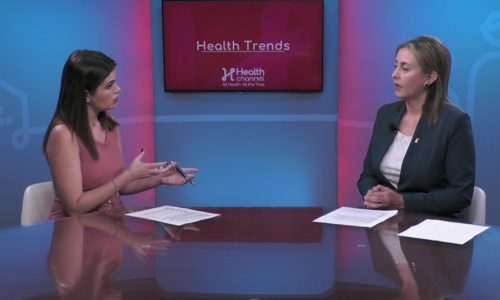Are my palpitations a cause for concern? |

Palpitations are the unpleasant and sometimes alarming sensations of rapid, irregular or forceful beating of the heart. The term “palpitations” is fairly non-specific since it can refer to a number of different types of disturbances of the heart’s normal “rhythm”. Depending on the nature of the rhythm disturbance, palpitations may be described as “skipped beats”, “fluttering” or “racing”. In most instances, palpitations are harmless, and in fact, in certain instances, may even be considered normal.
Normally, the heart beats between 60-100 times per minute. When the heart beats faster than this, it is called “tachycardia”. Under certain circumstances, tachycardia can be considered to be normal. For example, when you are exercising vigorously or frightened, your heart normally beats faster and more forcefully. This allows the heart to pump more blood to the muscles and lungs. If, on the other hand, heart “racing” occurs while you are at rest, this may indicate an abnormal heart rhythm (dysrhythmia), such as atrial fibrillation.
One common dysrhythmia is known as premature contractions or ectopic beats. These are usually described as “skipped beats” or as the heart briefly “stopping”. In this type of dysrhythmia, the heart contracts earlier than the next normal beat, followed by a pause. When the heart resumes beating, a more forceful beat or “thump” may be felt. When these occur infrequently, they may be entirely benign. Premature contractions occurring frequently, on the other hand, can be an indication of a heart condition.
What causes palpitations? Some of the most common causes for palpitations are:
- Diseases of the heart valves (mitral valve prolapse, aortic stenosis, etc.)
- Excess thyroid hormone (hyperthyroidism)
- Stress, fear, anxiety
- Fever
- Caffeine, nicotine, cocaine, diet pills
- Anemia
- Low blood oxygen level (hypoxia)
- Medications such as thyroid replacement, diet pills and asthma drugs
Palpitation “red flags” Anyone with known heart disease should consider palpitations to be a cause for concern. Actual blackouts or near blackouts associated with palpitations should be taken very seriously because they are often due to underlying heart disease. Chest pain or shortness of breath occurring during episodes of palpitations suggests that the heart is not pumping adequately and should also prompt medical evaluation.
How are palpitations evaluated? Should palpitations occur frequently, cause alarm, or if any of the “red flags” mentioned previously are present, medical attention should be sought. The object of the evaluation is to determine if the palpitations are “physiologic” or whether they are caused by an underlying medical condition. The evaluation starts with a medical history to consider the circumstances under which the palpitations occurred (drinking too much coffee, drinking alcohol, stressful work situation, etc.). A review of medications that one is taking as well as other symptoms that could suggest a medical problem such as hyperthyroidism or anemia is also done. Following this, a physical examination and often a resting electrocardiogram is performed. For suspected heart-related problems, other diagnostic tests include a 24-hour recording of the heart rhythm (Holter scan), an exercise stress test, and tests to study the electrical system of the heart (electrophysiologic study).
How are palpitations treated? Palpitations can be relieved in many patients by stress reduction, stopping cigarettes, and reduction of caffeine and alcohol. In the case of underlying heart disease, taking a medication to suppress the dysrhythmia or specialized surgical procedures may be necessary. If a condition such as hyperthyroidism is found to be responsible, measures to reduce the level of thyroid hormone will address the problem.
Sources for article:
Heart palpitations from Mayo Foundation for Medical Education and Research
Skipping a beat — the surprise of heart palpitations from Harvard Health Publications
Heart palpitations from Medline Plus
If you have any more questions just Ask Hanna, our health advisors are here to help.
Image: ©Shutterstock / Avigator Fortuner








